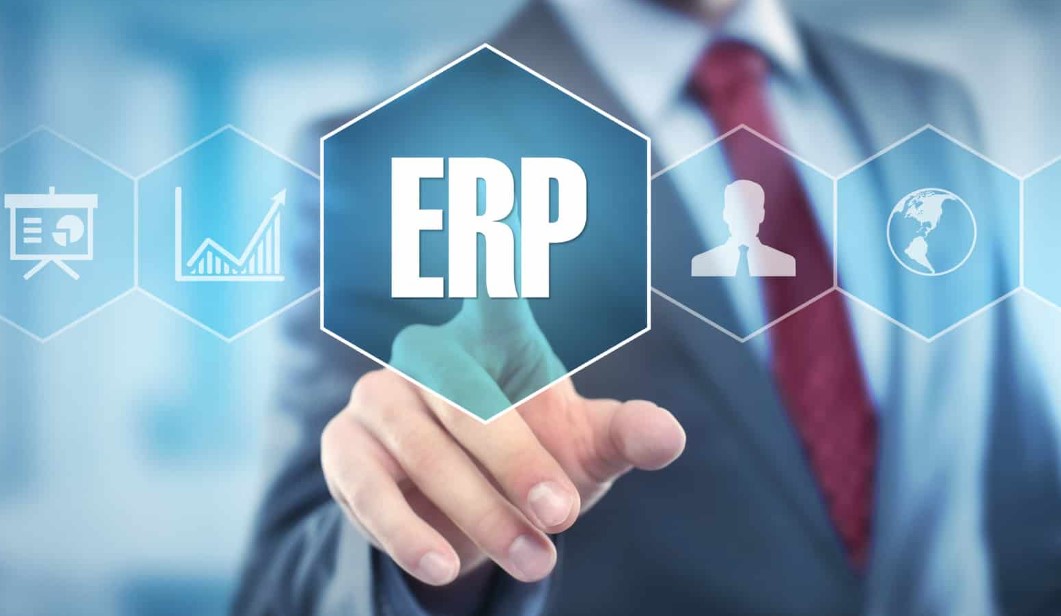In today’s fast-paced business world, large enterprises need agile, scalable, and powerful tools to manage complex operations. Cloud-based ERP (Enterprise Resource Planning) systems have emerged as essential tools for streamlining operations, centralizing data, and fostering collaboration across departments. For large organizations, cloud-based ERP provides the flexibility, scalability, and real-time data access required to stay competitive.
Cloud-based ERP systems offer numerous benefits over traditional on-premises solutions, such as lower upfront costs, seamless integration, and faster deployment. In this guide, we’ll explore some of the best cloud-based ERP solutions tailored for large enterprises, their features, benefits, and how to choose the right one for your business.
Benefits of Cloud-Based ERP for Large Enterprises
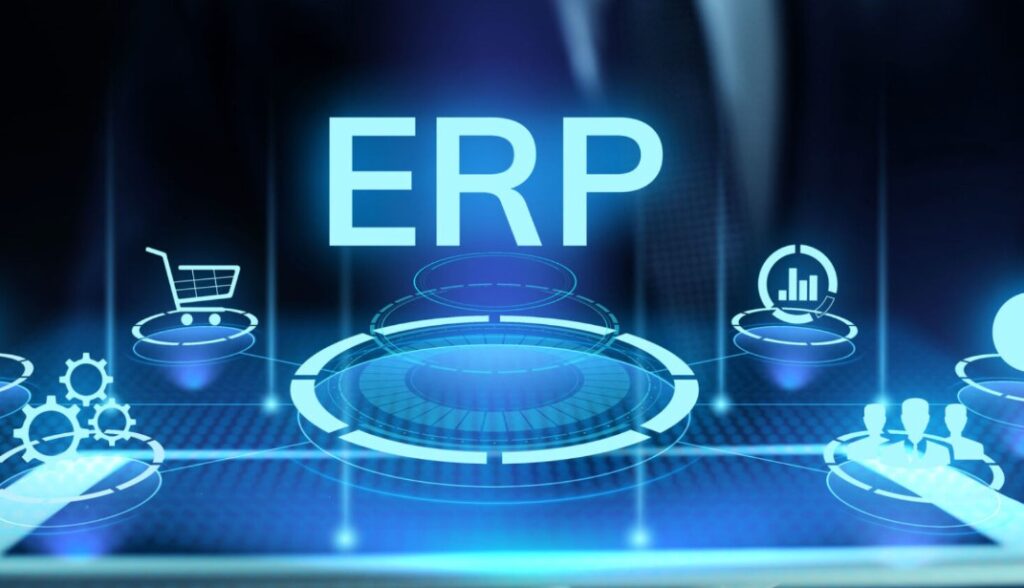
Cloud-based ERP systems offer a wide range of benefits to large enterprises, transforming how these organizations manage their operations, streamline processes, and scale their businesses. Let’s break down the key advantages in greater detail to understand why cloud-based ERP systems have become essential for large-scale operations.
1. Scalability and Flexibility
One of the most significant benefits of cloud-based ERP systems for large enterprises is scalability. As businesses grow, whether through expansion, mergers, or entering new markets, the need for systems that can scale with the enterprise becomes crucial. Cloud ERP platforms allow organizations to add new users, modules, and features without needing costly infrastructure upgrades.
- Example: A global retail chain can easily extend its cloud ERP system to accommodate new stores across regions, managing their inventory, sales, and accounting in real-time without needing to install new hardware at every location.
The cloud model provides flexibility by enabling businesses to adjust their usage and scale up or down as needed, which is vital for enterprises that experience fluctuating workloads or seasonal demand. This scalability reduces operational bottlenecks and supports business agility.
2. Lower Total Cost of Ownership (TCO)
Traditional on-premise ERP systems require substantial investments in hardware, software licenses, and IT resources for maintenance. In contrast, cloud-based ERP systems operate on a subscription-based model, which significantly lowers upfront costs and reduces long-term expenses:
- No Hardware or Maintenance Costs: The cloud provider handles the infrastructure and maintenance, meaning enterprises do not need to invest in or maintain expensive servers, cooling systems, and IT staff to manage the system.
- Predictable Costs: Cloud ERP solutions typically offer subscription-based pricing, making it easier for enterprises to predict and manage IT expenses. This can result in long-term savings as enterprises avoid the ongoing costs of maintaining and upgrading legacy systems.
For example, Microsoft Dynamics 365 and SAP S/4HANA Cloud allow businesses to pay only for the modules and services they use, offering flexible pricing that scales with the business’s needs.
3. Real-Time Data Access and Analytics
One of the key advantages of cloud-based ERP is the ability to provide real-time access to data across all business units and locations. Large enterprises, which often have multiple departments and offices in different geographical locations, benefit from having centralized data that can be accessed instantly from anywhere:
- Enhanced Decision Making: Executives and managers can make faster, data-driven decisions with up-to-date insights from the ERP system. Access to real-time data allows teams to track performance metrics, sales figures, inventory levels, and financials without waiting for batch updates.
- Real-Time Analytics: Many cloud-based ERP systems offer built-in analytics tools, such as dashboards and reports, that provide visual insights into business performance. This allows large enterprises to identify trends, monitor KPIs, and make strategic adjustments quickly.
For instance, Oracle ERP Cloud provides advanced real-time financial analytics that helps businesses streamline financial operations and improve forecasting accuracy
4. Improved Collaboration Across Departments
Cloud-based ERP systems allow multiple departments within an organization to access shared data, leading to better collaboration and synchronization between teams. In large enterprises, different departments like finance, HR, procurement, and supply chain management can work seamlessly together:
- Cross-Functional Integration: Cloud-based ERP unifies operations, so data from HR, finance, and inventory is centralized and accessible across the organization. This eliminates data silos, allowing for smoother workflows.
- Collaboration Across Geographies: Teams located in different regions can access the same data in real time, making it easier to coordinate projects, manage global operations, and ensure consistency across locations.
A large manufacturing company, for example, can use NetSuite to allow its global procurement team to collaborate with finance to manage supply chain costs efficiently. This not only speeds up decision-making but also reduces errors.
5. Faster Implementation and Updates
Compared to traditional on-premise systems, cloud-based ERP solutions are faster to deploy and update. Enterprises no longer need to spend months or even years installing hardware and configuring software. Cloud providers offer:
- Rapid Deployment: Cloud-based ERPs can often be implemented in a matter of weeks, enabling businesses to start using the software quickly and minimizing disruption.
- Automatic Updates: Cloud ERP systems receive automatic updates, ensuring that businesses always have access to the latest features and security patches without downtime or manual intervention.
For large enterprises with extensive operational needs, having immediate access to the latest technology can be a competitive advantage. For example, Acumatica Cloud ERP is known for its fast deployment and regular system upgrades, allowing businesses to remain at the cutting edge of ERP technology.
6. Enhanced Security and Compliance
Security is a top priority for large enterprises, especially when dealing with sensitive financial data, customer information, and regulatory compliance. Cloud ERP providers typically offer advanced security measures:
- Data Encryption: Cloud ERP systems encrypt data both at rest and in transit, ensuring that sensitive information is protected from unauthorized access.
- Multi-Factor Authentication (MFA): MFA adds an extra layer of security by requiring users to verify their identities with more than just a password.
- Compliance with Industry Regulations: Many cloud ERP providers are certified for compliance with various industry standards, such as ISO 27001 for information security and GDPR for data privacy, making it easier for enterprises to meet their legal obligations.
For example, SAP S/4HANA Cloud ensures compliance with various industry standards, providing large enterprises with peace of mind when handling sensitive customer and business data.
7. Disaster Recovery and Business Continuity
Cloud-based ERP systems offer built-in disaster recovery and business continuity features. In the event of a data breach, system failure, or natural disaster, cloud ERP systems provide:
- Automated Backups: Cloud ERP providers regularly back up data, ensuring that enterprises can restore critical business information quickly in case of any disruptions.
- Redundancy and Failover Mechanisms: Cloud providers often have multiple data centers worldwide, so if one data center experiences downtime, another can take over, ensuring business operations continue uninterrupted.
For large enterprises, having guaranteed uptime and recovery solutions is crucial to avoid costly disruptions in operations. Oracle ERP Cloud, for instance, provides built-in disaster recovery mechanisms to keep business operations running smoothly.
Top 5 Cloud-Based ERP Solutions for Large Enterprises

Here are five of the best cloud-based ERP solutions designed for large enterprises. Each offers unique features and benefits, along with a transactional focus to help businesses streamline their operations.
1. SAP S/4HANA Cloud
SAP S/4HANA Cloud is a robust cloud-based ERP solution designed for large organizations across various industries. Its in-memory computing capabilities provide real-time insights into business data.
- Use Case: Ideal for large, multinational companies needing advanced analytics, supply chain management, and financial reporting.
- Key Features: Real-time analytics, intelligent automation, integrated supply chain management, advanced financial management.
- Pros: Comprehensive feature set, excellent for global companies, real-time data processing.
- Cons: High implementation cost, steep learning curve for new users.
- Price: Custom pricing based on enterprise size and requirements.
2. Oracle ERP Cloud
Oracle ERP Cloud offers an integrated solution that includes financials, project management, procurement, and risk management. It’s designed to handle the complexity of large-scale operations.
- Use Case: Best for enterprises requiring robust financial management and project automation.
- Key Features: Advanced financial planning, procurement, project tracking, compliance monitoring.
- Pros: Strong analytics, scalability, customizable modules.
- Cons: Requires significant customization for specific industry needs.
- Price: Starting at $2,500 per month.
3. Microsoft Dynamics 365
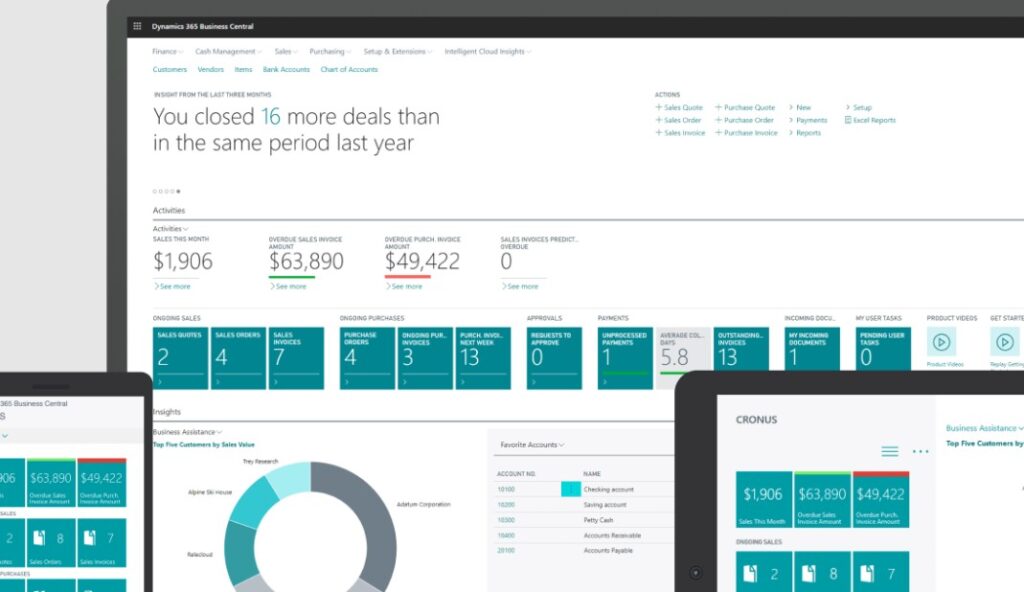
Microsoft Dynamics 365 offers ERP capabilities alongside CRM, making it a strong choice for organizations looking to manage both customer relationships and core operations in a single platform.
- Use Case: Perfect for companies heavily invested in Microsoft ecosystems like Office 365 and Power BI.
- Key Features: Unified platform for ERP and CRM, integration with Office 365, real-time reporting, AI-driven insights.
- Pros: Seamless integration with other Microsoft tools, flexible deployment (cloud or on-premises), powerful AI features.
- Cons: Requires extensive training for complex features.
- Price: Starting at $70 per user per month.
4. NetSuite
NetSuite by Oracle is a cloud-native ERP designed to grow with your business. It provides a comprehensive suite of applications for financial management, supply chain operations, and order management.
- Use Case: Best for enterprises seeking a scalable ERP that grows with the business.
- Key Features: Financial management, order and inventory management, CRM, e-commerce integration.
- Pros: Highly scalable, excellent customization options, real-time visibility.
- Cons: Can become costly as you scale up.
- Price: Custom pricing available based on the business size.
5. Acumatica Cloud ERP
Acumatica offers a flexible cloud-based ERP system that supports multi-entity organizations. It is highly customizable and integrates with various third-party applications.
- Use Case: Ideal for large enterprises with complex multi-entity structures or global operations.
- Key Features: Financial management, multi-entity support, inventory management, business intelligence.
- Pros: Flexible, scalable, real-time access across multiple locations.
- Cons: High learning curve, can be expensive for smaller enterprises.
- Price: Starting at $1,800 per month.
Product Comparison Table
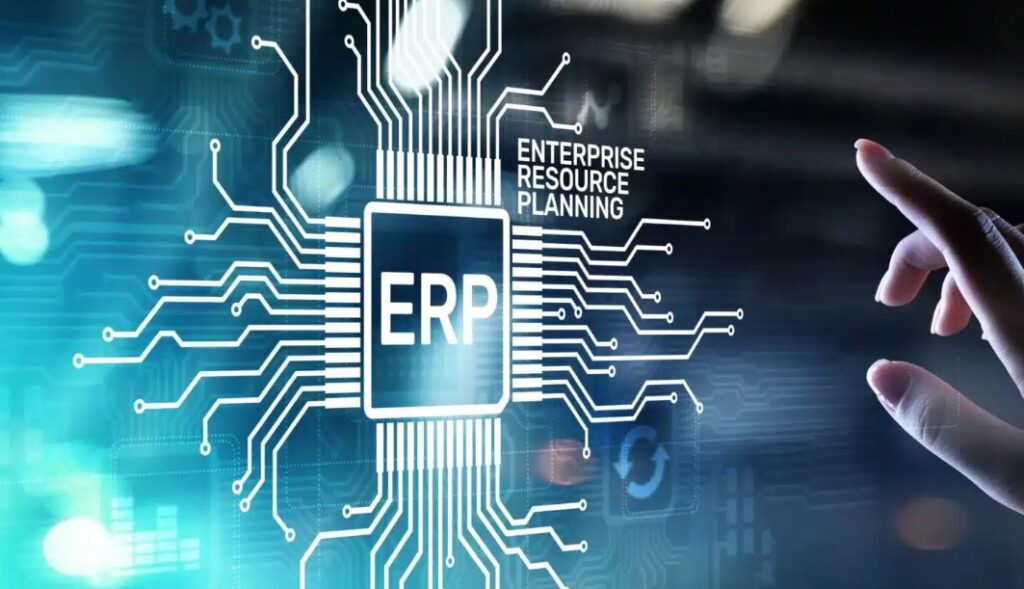
| Product | Use Case | Pros | Cons | Price |
|---|---|---|---|---|
| SAP S/4HANA Cloud | Global companies with advanced needs | Real-time analytics, automation | High cost, steep learning curve | Custom pricing |
| Oracle ERP Cloud | Financial management and automation | Strong analytics, customizable | Requires extensive customization | $2,500/month |
| Microsoft Dynamics 365 | ERP + CRM in one platform | Seamless Microsoft integration, AI-driven | Extensive training required | $70/user/month |
| NetSuite | Growing enterprises | Scalable, customizable | Can become costly | Custom pricing |
| Acumatica Cloud ERP | Multi-entity and global operations | Flexible, multi-location support | High learning curve | $1,800/month |
How to Buy the Best Cloud-Based ERP for Large Enterprises
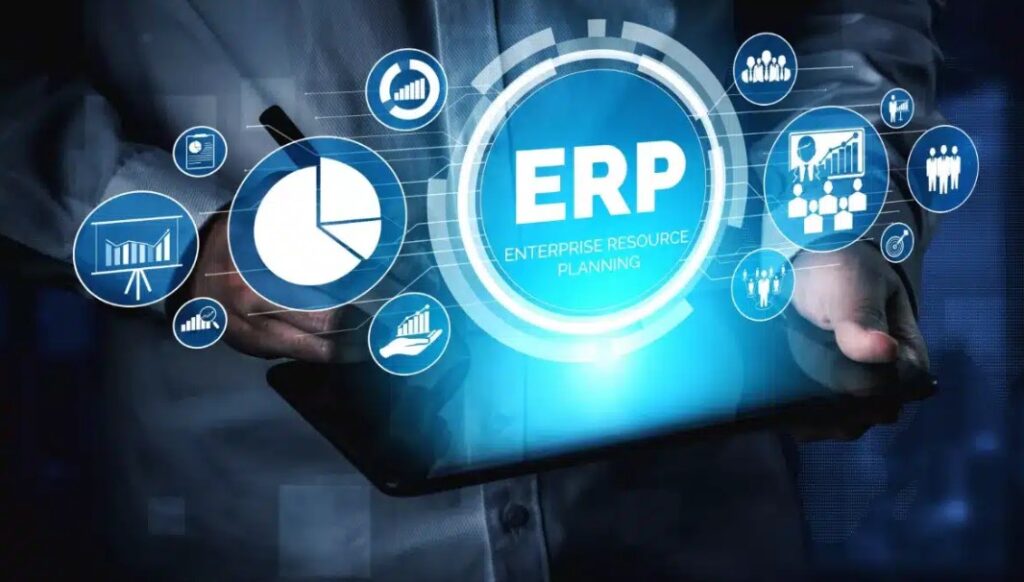
1. Identify Your Business Needs
Determine the most critical areas of your business that require improvement. Whether it’s financial management, supply chain optimization, or customer relationship management, understanding these needs will help you choose the right ERP solution.
2. Request Demos
Before committing to an ERP solution, request demos from vendors. A live demo will allow your team to assess the software’s usability, features, and how it integrates with your current systems.
3. Evaluate Scalability
Ensure that the ERP solution can grow alongside your enterprise. Scalable solutions like SAP S/4HANA or NetSuite allow businesses to add users and capabilities without significant downtime or additional infrastructure investments.
4. Negotiate Pricing
ERP pricing can vary widely based on the features you need and the size of your enterprise. Many ERP vendors offer custom pricing based on your business’s specific requirements, so don’t hesitate to negotiate for the best deal.
Here are links to purchase the top solutions:
To buy the best cloud-based ERP for large enterprises, identify your organization’s specific needs, request demos, and evaluate the system’s scalability and integration capabilities. Ensure the solution meets compliance standards and negotiate custom pricing. Proper selection will improve efficiency, real-time data access, and scalability for growing enterprises.
FAQ About Cloud-Based ERP for Large Enterprises
- What is the main benefit of cloud-based ERP for large enterprises? Cloud-based ERP offers real-time data access, scalability, and cost efficiency, allowing large enterprises to streamline operations and enhance decision-making.
- How much does a cloud-based ERP cost? Pricing varies depending on the vendor and features required, with prices starting at around $70 per user/month for basic solutions and going up to $2,500+ for more comprehensive platforms.
- Can cloud-based ERP systems integrate with other software? Yes, most cloud-based ERP systems offer seamless integration with CRM, HR, and other business applications, allowing data to flow smoothly across departments.
- Are cloud-based ERP systems secure? Reputable vendors use advanced security features like data encryption and multi-factor authentication to protect sensitive business data.
- How long does it take to implement cloud-based ERP? Implementation times vary, but it typically takes a few months depending on the complexity of the system and the organization’s readiness for the transition.
Choosing the right cloud-based ERP for your large enterprise can lead to significant improvements in efficiency, cost savings, and overall business growth.
